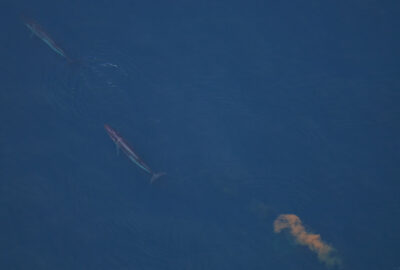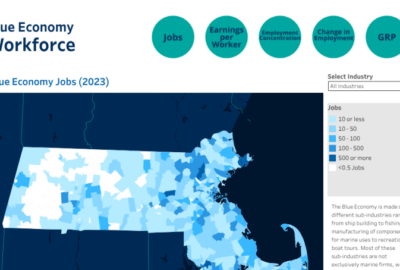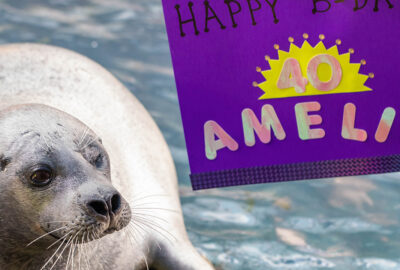Announcing our Membership in the International Union for Conservation of Nature
The New England Aquarium recently joined the International Union for Conservation of Nature, a global coalition of organizations working for the environment.
By New England Aquarium on Monday, October 06, 2025

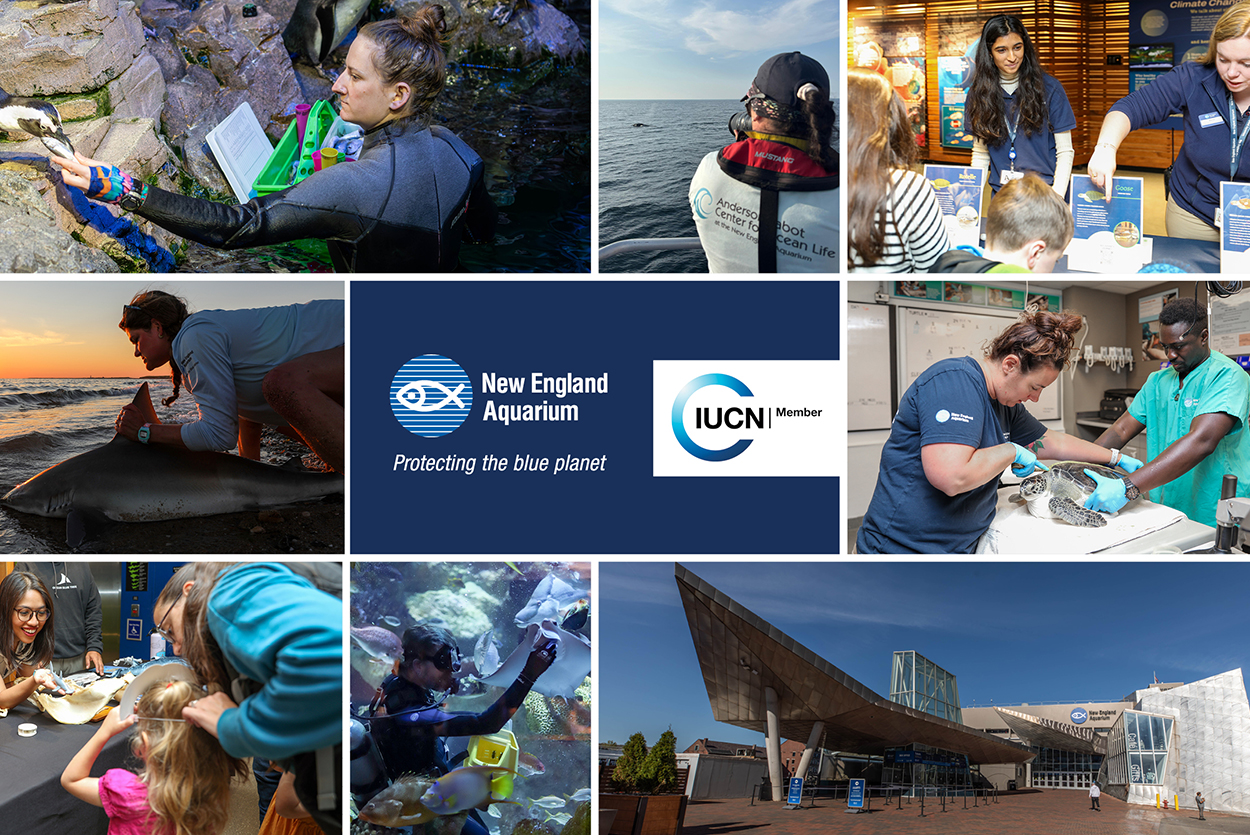
As one of the first aquariums in the world to join the International Union for Conservation of Nature (IUCN), the New England Aquarium will lend expertise to a worldwide coalition to conserve nature.
Created in 1948, the IUCN comprises the world’s largest and most diverse network of organizations working for the environment. From governments to non-profits and more, over 1,400 member organizations and 17,000 experts make up the union of the IUCN—the “global authority on the status of the natural world and the measures needed to safeguard it.”
The Aquarium was recognized as a member because of its commitment to conservation and the IUCN mission, demonstrated through our extensive animal care, innovative scientific research, and marine conservation and education work. While the IUCN strives to conserve all of nature, our ocean-specific focus lets us weigh in on issues ranging from marine life and habitats to the blue economy and youth engagement—and connects the Aquarium to a broad array of experts and resources to help advance our own work to protect the blue planet.
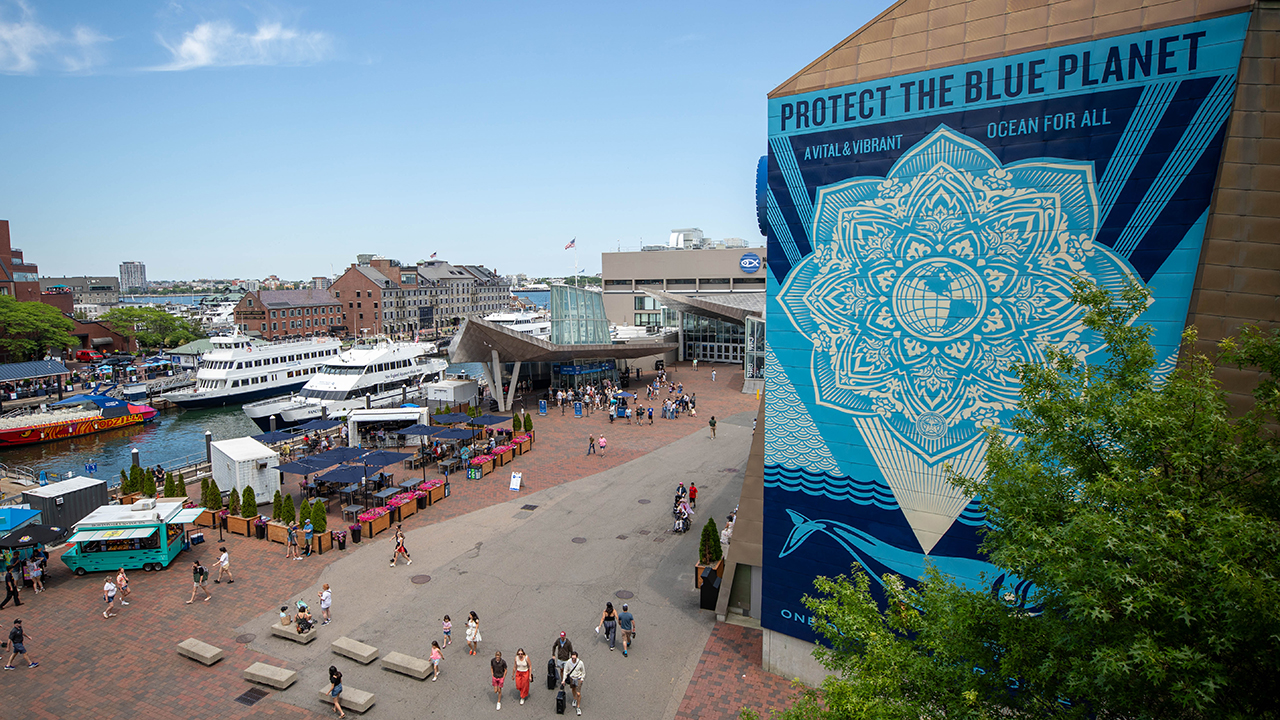
While it’s still the early days of the membership, there are opportunities to be more involved in the future. One area is in informing equitable and effective practices for the IUCN’s project-based conservation work around the globe, based on our experience working with and learning from our Marine Conservation Action Fund (MCAF) fellows and project leaders.
Another is for members of our Animal Care and Anderson Cabot Center for Ocean Life teams to serve on the IUCN Species Survival Commission (SSC)—groups of volunteer experts who gather knowledge on the status of over 150,000 different species and threats to them.
The SSC network, composed of more than 180 Specialist Groups, Red List Authorities, Conservation Committees, and Task Forces, “provides scientific advice to conservation organizations, government agencies, and other IUCN members,” and helps support international environmental agreements to protect biodiversity.
Already, Dr. Elizabeth Burgess, senior scientist in the Aquarium’s Anderson Cabot Center for Ocean Life, is a member of the SSC Sirenia Specialist Group. Veterinarian and Senior Scientist Dr. Charles Innis participates in the SSC Tortoise and Freshwater Turtle Specialist Group.
The Aquarium is also exploring joining one of several other Commissions, such as the Commission on Education and Communications or the World Commission on Protected Areas.
In mid-October, a delegation from the Aquarium will be traveling to Abu Dhabi to attend the IUCN World Conservation Congress, a gathering held once every four years that brings together experts and decision-makers from around the globe. Chief of Conservation and Stewardship Dr. Letise LaFeir will represent the Aquarium as Authorized Vote Holder at the conference, joining debate at the Member’s Assembly and voting on IUCN conservation priorities on behalf of the Aquarium. Alongside Dr. LaFeir will be Dr. John Mandelman, vice president and chief scientist at the Aquarium’s Anderson Cabot Center;, Sarah Reiter, associate vice president of Conservation Practice at the Anderson Cabot Center; and Elizabeth Stephenson, director of MCAF. Several MCAF Fellows and Project Leaders will also be present at the World Conservation Congress.
“The goal is to be able to inform, influence, and implement collective conservation impact,” said Reiter. “We’ve only just scratched the surface, and we’re eager to work with members from across the world on the most pressing conservation issues facing our blue planet.”

